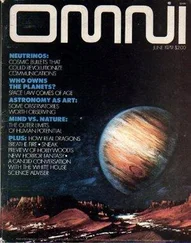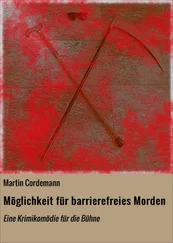I’m sorry, Frank. This situation is very new to us as well. We’re trying to keep things professional here, and anything that affects that—of course that includes your well-being—is our number one concern. We’ll have to try a little bit harder to communicate that to you, and I can only apologize if you feel we’ve let you down so far.
Good luck, Luisa.
[message ends]
Frank had to go through each hab, upper and lower levels, and make a fingertip search for anything that might indicate that the base had been the home for eight people and not one. Disposing of spacesuits, tablets, overalls, worn sleeping mats, part-used toiletries, scratched crockery and cutlery, everything. Special attention had to be paid to finding telltales like personalized graffiti or notes—written on what was anyone’s guess, as there was no paper. Bodily remains such as hair and skin needed to be removed and disposed of, including a thorough cleaning of the drains.
Then there was all the blood.
Now that the satellite dish was working again, the computer would purge itself automatically of data: the seven-day cycle of information would ensure that. The rest was up to him.
He’d found out the ultimate destination of the descent ship that had brought him and the others to Mars. When they’d had problems early on with power generation and the lack of spares, Brack had told them, point-blank and without explanation, that they weren’t to cannibalize the ship at all. The reason was because the ship was taking off again.
It didn’t have enough fuel to re-enter Earth’s orbit, nor could it re-enter the atmosphere. Its rockets weren’t enough to slow it down, and its heat shield and parachutes had already been used and discarded.
What it was going to do was two-fold. Firstly, it was going to throw up a smokescreen that would cover the lack of robotic base-building machines, under the pretense of returning them to Earth for commercially sensitive evaluation. Secondly, it was going to be used to launch the remains of seven dead people, and all evidence they’d ever come to Mars, into the heart of the Sun.
Frank had blinked roundly at that. He wasn’t a rocket scientist, and didn’t know how much fuel that would take, but he presumed whoever had plotted the course knew their math. It might take a year or two to get all the way in, but as far as getting rid of exhibits that might be used in a trial went, dropping them into a star was pretty final.
They’d literally thought of everything. He wondered how much more effort would have been required to refreeze them all and put them back into Earth-orbit, to be collected by a shuttle doing a round trip, up and down again.
Clearly, too much. The whole thing was just… willfully brutal. The lives of seven people didn’t figure in someone’s spreadsheet, but faking the existence of Mars-graded robots did. Frank, and the rest of them, were just consumables.
Just when he didn’t think he had any anger left inside, it came boiling back up to the surface and threatened to overwhelm him. Why shouldn’t he just raze the base to the ground and tell them what he’d done?
Because that wasn’t going to get him what he wanted. And, dammit, they owed him.
XO’s solution to the blood problem was crude: take the affected floor panels outside and rub them down with sand until they came clean. Frank had been hoping he’d be given the instructions on how to brew up a chemical cleaner—the soil contained chlorate, and that sounded a lot like chlorine, and he knew that chlorine was in bleach. Whatever it was, it was corrosive enough to eat away at the metal plates of the tires.
He’d already levered the panels up in Comms, from the place where Brack had bled out, up to the door that had been held shut while Dee had suffocated. About a dozen in all, and when he’d popped them out and carried them to the airlock at the far end of the yard, he’d gone carefully on his hands and knees to see how much of the blood had seeped through the cracks.
Where he’d dragged the body, not at all. Where it had lain for a while, quite a lot. Some had dribbled through into the void between the floor and the ceiling of the lower level, where the pipework and cables ran. That was… unfortunate. He wasn’t going to drain and unplumb the whole system, or even parts of it, just to make certain he’d got rid of every last scab. He was going to have to try and get as much of it off as he could—certainly that which was easily visible—by working from both above and below, taking out the ceiling panels too.
Frank wanted to do a good job, because he wasn’t going to be able to explain any quantity of spilled blood to a bunch of curious scientists. They’d unravel his excuses in a heartbeat, and then… that was when things would get difficult, for everybody. He wanted to spare himself and the astronauts that, even if it meant letting XO off the hook.
It was a decent day outside—he’d been on Mars long enough to be able to tell good weather from bad. The early morning fog had burned off, and the high ice-clouds chased away westwards. The dust-load was less than usual, and the view across to Uranius Mons clear enough to discern the truncated top of the volcano.
There’d be dust devils in the afternoon, after the ground had heated up, and it’d get gradually hazier until the sun started to sink again. A purple dusk was in prospect, and a cold night.
He’d laid out the panels near the satellite dish, their hard plastic surfaces shining in the weak sunlight, and had been using a nut runner and parachute cloth as an improvised flap-wheel. It worked inefficiently, but, if he pressed hard enough, sufficiently well for him to persevere. He had electrical power, and he had a planet-load of grit to use as an abrasive.
Slowly but surely, the dirt shifted the blood. He had to stop often to move the soil around, and to check on his progress, but it was a lot quicker than doing it manually.
He cleaned one panel, shook it free of red soil, and started on another.
When he’d done two, he was tired. He drank some water from his suit, and sat back for a few minutes with his back against the dish assembly. The sun had climbed higher, a small yellow disk against a pink-blue halo, darkening to a light brown at the horizon.
His work was carried out in almost perfect silence. Nothing he was doing made enough noise to propagate through Mars’s thin air, although he could feel the vibrations through his hands, and imagined the grinding sounds.
Which was why he missed the start of the thunder, and only when it was too loud to ignore did he get to his feet and look up.
Frank scanned the sky, looking for the telltale line of smoke, or the bright dot of a parachute. He couldn’t see it to start with. But he was looking too low, expecting it to be directed over the plain like all the others. Only when he leaned back and craned his neck did he see it.
The black streak of burned re-entry shield—technically an entry shield, because it wasn’t going anywhere it had been before—was almost zenith-high, angling in over the top of the volcano behind him. He followed its direction, and there were the parachutes along that line, tiny to the naked eye, but in reality vast red-and-white canopies extending far beyond the smudge of metal that pulled them through the thin air.
It fell, and very slowly detail resolved. The object suspended below the parachutes was ship-like: bullet-shaped and bright. It was difficult to tell how large it was, but it was definitely not the pencil-thin arrow of a cargo delivery.
And he realized that it was coming straight for him. It wasn’t just close. It was directly above him and it was falling on his head.
If he’d still had his medical monitor, it would have recorded his breathing and heart rate accelerating away. Two immediate, terrible thoughts.
Читать дальше












